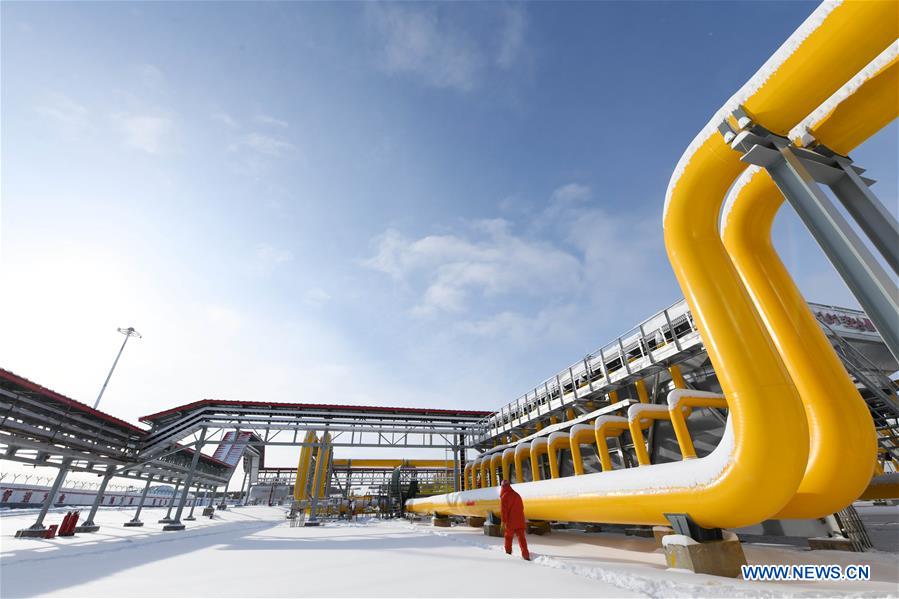China-Russia east-route natural gas pipeline in operation
The China-Russia east-route natural gas pipeline was put into operation on Monday.
The China-Russia east-route natural gas pipeline was put into operation on Monday.
A staff member walks past pipelines in the gas-distributing and compressing station of the China-Russia east-route natural gas pipeline in the city of Heihe, the first stop after the Russia-supplied natural gas enters China, northeast China's Heilongjiang province, Nov. 19, 2019. [Photo/Xinhua]
At the gas-distributing and compressing station in the city of Heihe, northeast China's Heilongjiang province, the data screen was switched on, indicating parameter variations of the gas passage. The station is the first stop after the Russia-supplied natural gas enters China.
The pipeline is scheduled to provide China with 5 billion cubic meters of Russian gas in 2020 and the amount is expected to increase to 38 billion cubic meters annually from 2024, under a 30-year contract worth US$400 billion signed between the China National Petroleum Corp (CNPC) and Russian gas giant Gazprom in May 2014.
The cross-border gas pipeline has a 3,000-km section in Russia and a 5,111-km stretch in China.
Shao Hua, general manager of Heihe City Natural Gas Development Co., Ltd. of China Gas, said that the border city of Heihe still largely relies on coal for heat. With the Sino-Russian natural gas pipeline's operation, the city now has access to a stable supply of clean energy.
Heihe has registered 30,000 households for switching to natural gas for heating. It will take one year to complete full coverage of the gas network in the city, according to the company.
China's natural gas consumption reached 280.3 billion cubic meters in 2018. The country's demand for natural gas will continue to soar toward 2040, outstripping domestic output by around 43 percent, according to an International Energy Agency report.
China aims to raise the use of natural gas to 10 percent of the country's energy mix by 2020 and 15 percent by 2030, said the National Development and Reform Commission.


